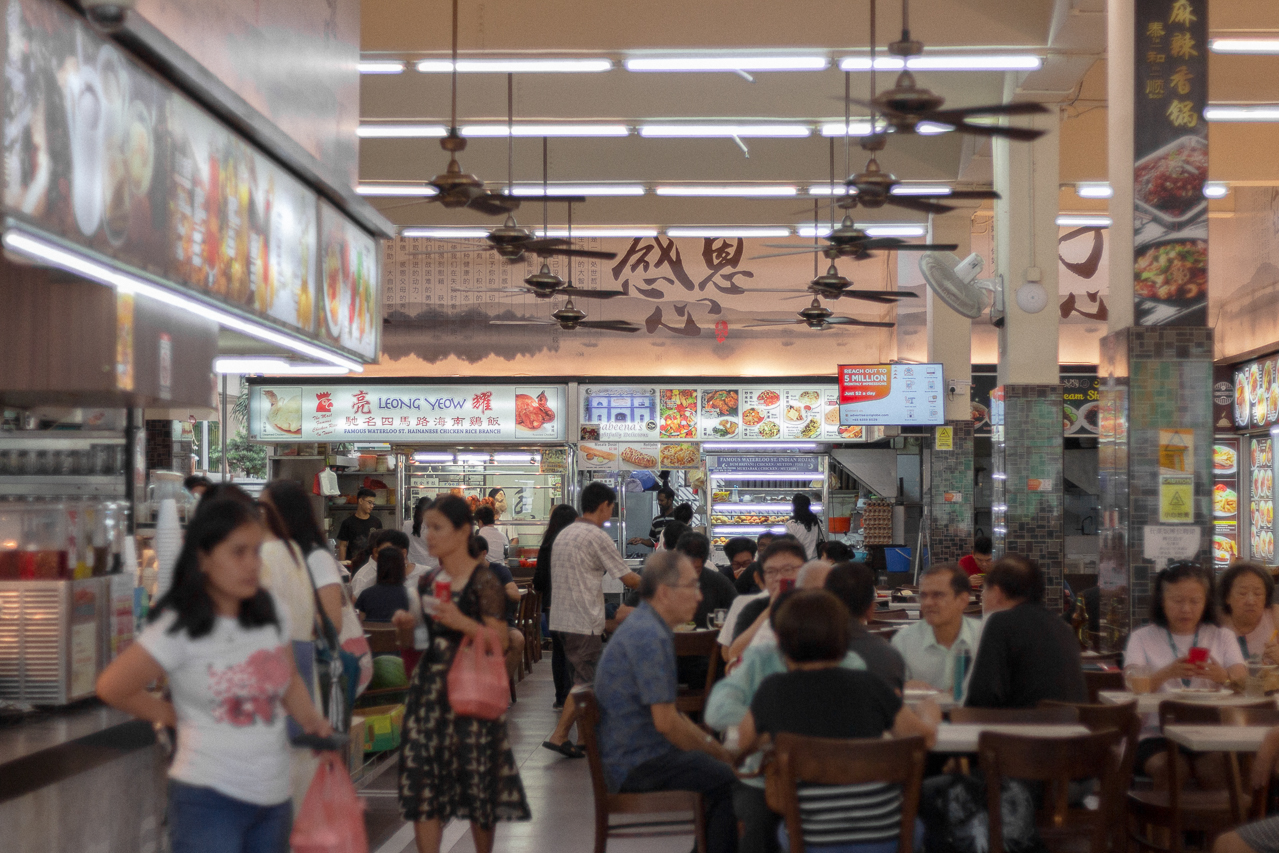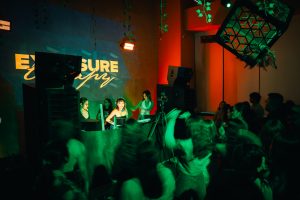“My mother told me that a woman is most beautiful when she is sitting alone and eating.”
Tan Hui Er’s cryptic statement takes me aback. At first glance it sounds like another trite hipster aphorism, but if I squint with my pretentious arts-student goggles I could dissect its meaning.
In our cosmopolitan country, we’re constantly socialising—think of office lunches, family dinners, and get-togethers with friends where you don’t know what’s for dinner—and even eating feels like a performance.
But the image of a woman eating alone in a hawker centre subverts this. As though she exists in a natural state of the mundane, a paragon of heartland Singapore.
This archetype isn’t the only one to exist in hawker centres—a polyphony of conversations swirling around tables and stalls. Our favourite cultural institution is undeniably Singaporean, but we are a nation constantly in flux, constantly modernising.
There’s construction going on no matter where you look, and our landmarks are built and disappear at a rapid space. Compared to other countries, we have little heritage that we end up preserving.
In addition, the hawker profession is dying. Fewer Singaporean youth are taking up the mantle—despite Seth Lui videos convincing you otherwise—and food prices aren’t matching the rising costs of living, or even inflation.
These intersecting issues forecast a future where Singapore might no longer have hawker centres. As we start reckoning with this bleak reality, we have to ask ourselves: what happens to our nation when these spaces don’t exist?
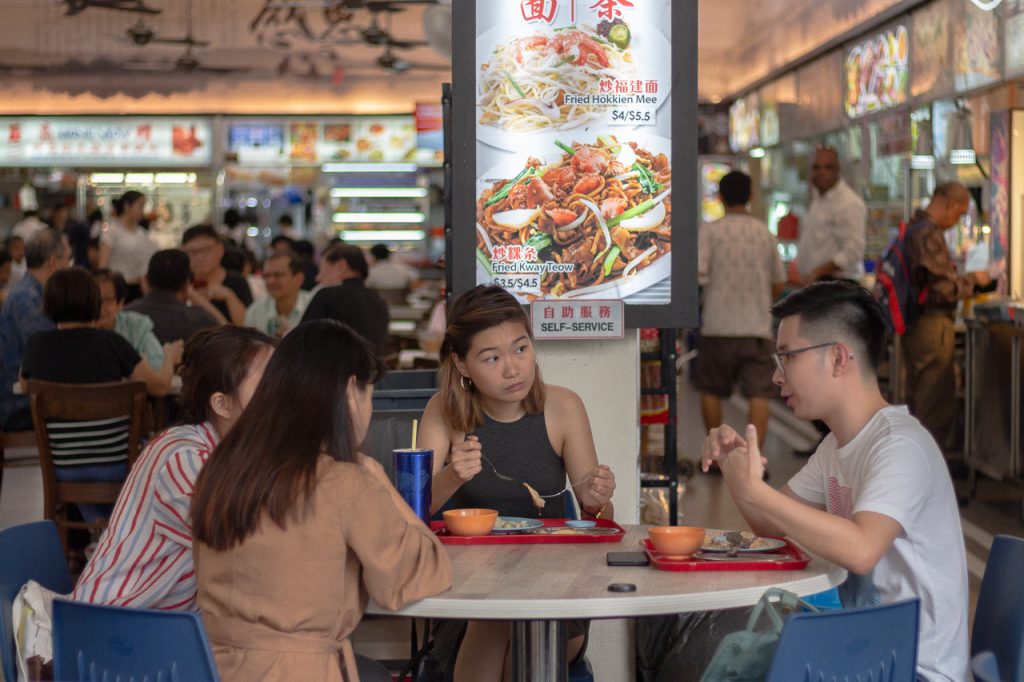
Fittingly, the play itself mirrors the dynamics of a hawker centre. The audience sits at round tables which the actors will rotate around, which means that different tables will be watching differently ordered performances. There will even be finger food available because 2BCo is dedicated to making the play a completely sensorial experience.
“It will be different when audiences experience it on an intense level, so that they can truly think about what these spaces mean to them,” Lynn says.
Our younger generation in particular have lived their lives with few architectural anchors. We might feel for the loss of these spaces, but we’ve ended up mostly resigned. This blasé attitude might stem from how we’ve been primed to think in logical, utilitarian terms.
We understand the seeming necessity of constant upgrading. Of course a neighbourhood school has to close down if there’s low enrolment; of course an air-conditioned mall is better than a hawker centre.
Resistance then comes from the irrational stirrings of passion. Of nebulous feelings that our culture is built upon.
Lynn hypothesizes that these feelings aren’t divided by generation—Hui Er’s grandparents are all for Singapore’s modernisation and being a clean and efficient country—but dependent on attachment. If you take away a playground from a child, they’ll also get mad.
“I was so upset when they changed the sand pits at the playgrounds!” Hui Er interjects.
“But now there’s no more mosquitoes,” Lynn muses.
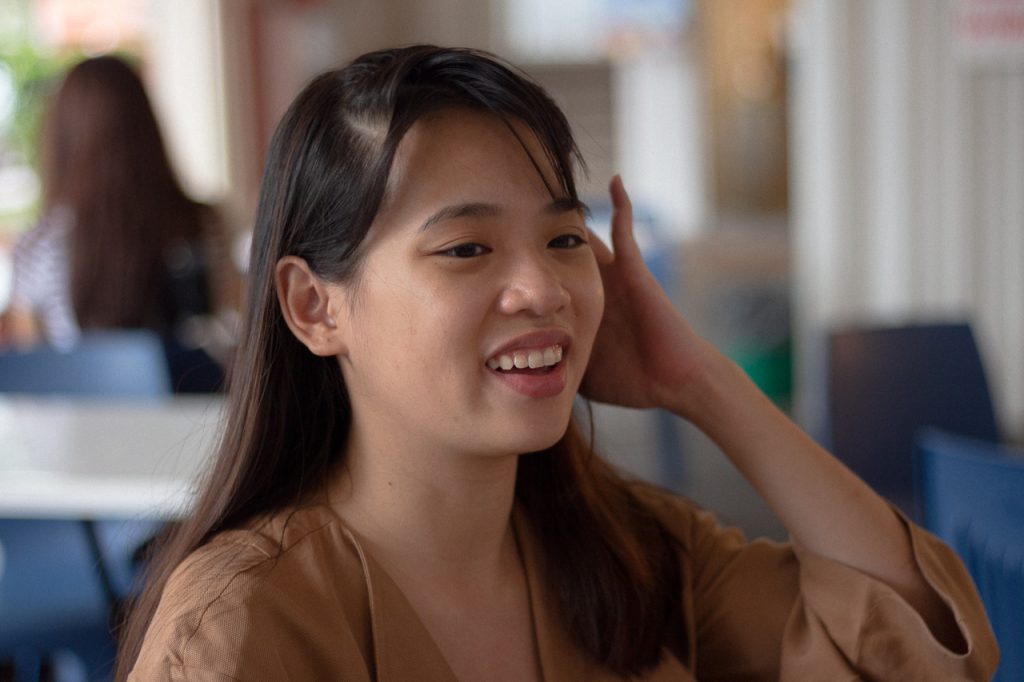
With more public spaces becoming incessantly monetised, hawker centres become one of the last bastions for free, communal gatherings. Lynn comments that she’s often curious about why youth in her neighbourhood often hang out at the food court beneath her place and make noise. But where else can they go that provides shelter, lights, good ventilation, and the option to buy food and drinks?
It makes you question what the function of a hawker centre is.
“Is it really the food that makes the space, or the auntie that gives you free ice milo?” Lynn asks.
But what makes hawker centres truly special is the intimately embedded idea of sharing. As a country without the luxury of space, we’ve been strong-armed into sharing tables with strangers. And in this arrangement, we also end up sharing our own lives.
Hui Er lays out a scenario that most of us are no doubt familiar with.
“We’ll be engaged in our conversations and they in theirs, but we can hear them and they can hear us. And there’s the idea of I don’t care, because they’re strangers you’ll never see again.”
Against the clamour of the hawker centre, there’s this mutual, unintentional eavesdropping that a hawker centre facilitates. The proximity to others while allowing for noise in a public setting is something few other spaces afford. And the knowledge that these are strangers gives one a freedom to let them into your unfiltered, intimate life—like how it’s easier to spill secrets online anonymously rather than to your friends.
The Hawker skillfully recreates these voyeuristic elements. An actor might be shouting over at another table, and you’ll be able to catch the ruckus. Or the tables will be positioned such that if you sit just right, you can hear another table’s conversation spilling into yours.
Though it is a performance, like all theatre it aims to capture an essence of reality. Hui Er confesses that she enjoys taking such a voyeuristic view because that’s how we experience others in our day to day lives.
“It’s awful, but the more you eavesdrop the more empathy you have. Because you see people as they are, and they’re not putting on a show, and there’s something precious in that.”
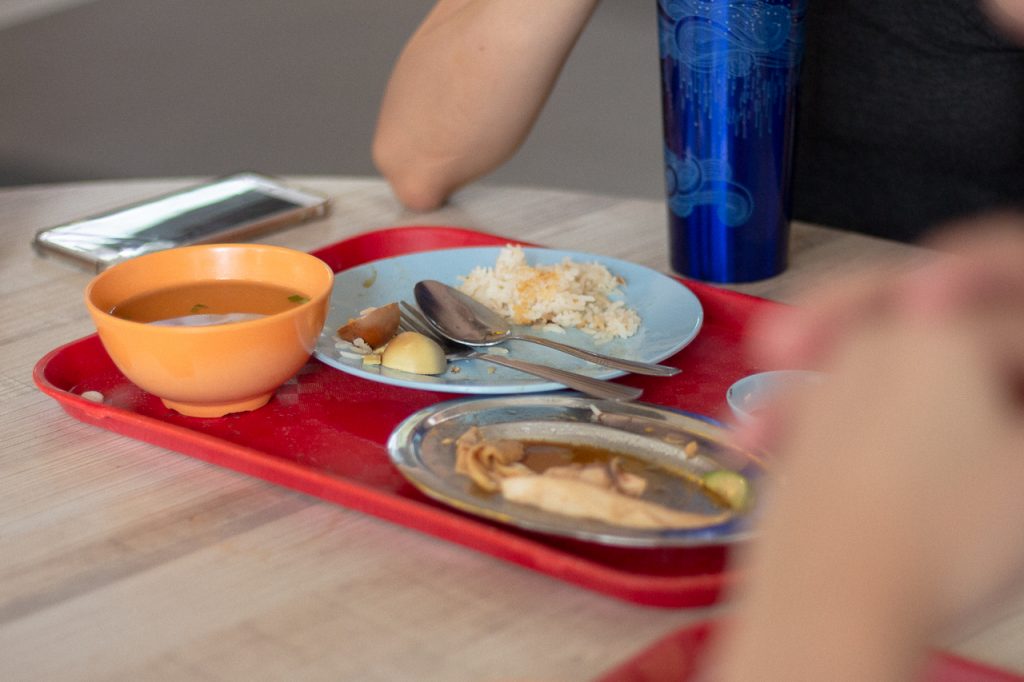
As nascent adults, our maturity gives us the capacity to understand different perspectives, yet we lack the life experience to have encountered the diversity of Singaporean voices. Few of us can comprehend getting fired from a job, or bringing a child into this world, or watching your neighbourhood change until it’s unrecognisable.
Hui Er recounts working on the National Memory Project with theatre practitioner Johnny Jon Jon when she was 20, and a quote from him that stuck with her.
“He told me, ‘It’s so sad that I can’t bring my child to the places where my wife and I dated.’ That’s not something we think about at our age.”
This humility and eagerness to learn has been baked into the process of creating the show. Hui Er made a deliberate choice not to take the cast out on observational studies—today, we will sit at Maxwell Food Centre for 1 hour, and—but that doesn’t mean they are oblivious to the happenings of these spaces.
Hui Er relays what the actors have told her, that being part of the performance has made them more receptive to listening in their everyday lives. That as they go about their day and spend time in hawker centres near their homes, they remember the show’s themes which lead them to absorb the stories taking place around them. This dredges up questions that feed back into the way they perform.
They start to examine their choice of words and their actions—would a businessman really say this? Would a hawker stall owner behave in this way? Does this match the emotional reality they are trying to present or are they relying on stereotypes and caricatures?
By putting a mirror to their biases and the way they view the world, they become more intimately involved in their characters, and the real life people they are based upon.
Through theatre and through exploring quintessential spaces like a hawker centre, our youth engage with the tensions of growing up in a modern world—of listening to one’s inner truth, and speaking it.
As we wrap up, we segue into a discussion about the various youth-led theatre companies that have been popping up. Our final exchange sparks within me a flicker of relentless optimism.
“There’s hope for our generation,” I muse.
And Hui Er replies: “There always is!”
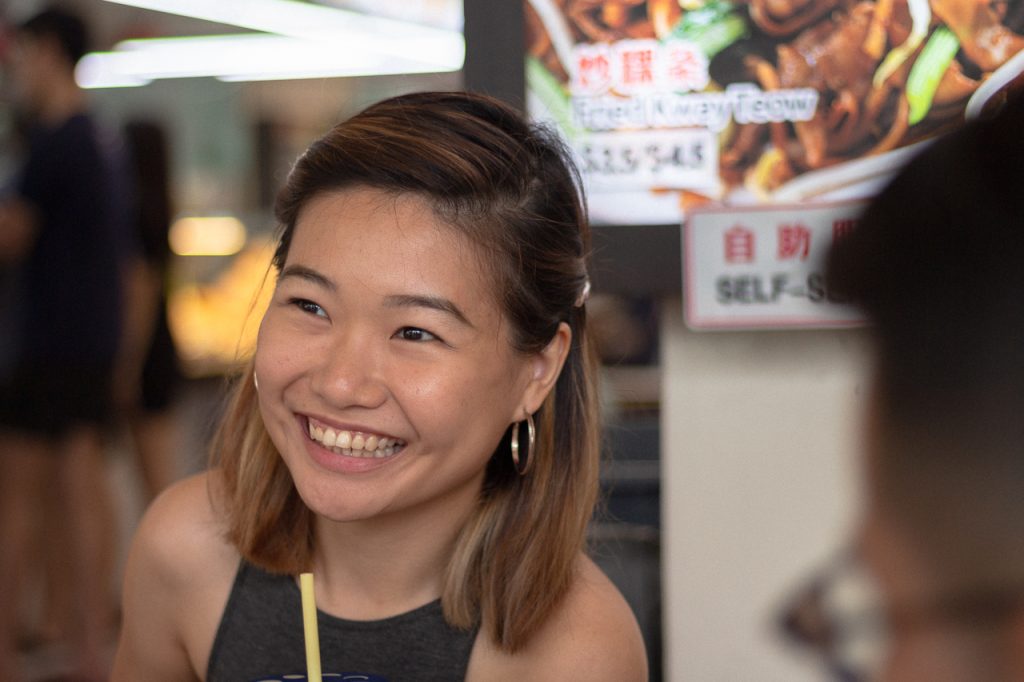
Without speaking, a woman slips into the gap they’ve left behind. I recognise the babi tempra on her plate as she whips out her phone, one hand cycling between WhatsApp and Instagram, the other stabbing at pork and rice.
A loud group of colleagues return to their choped seats at the table to my right. Without having to strain my ears, I catch snatches of office politics, snide comments aimed at insurance agents, and plans for the December holidays. One of them is headed to Shanghai, another to Indonesia, and the last is considering a staycay back home.
Finished with my lunch, I get up to leave. And for a moment my table-mate is alone, engrossed in her screen.
She chuckles at something she reads, covering her mouth. But I hear her, and Hui Er’s cryptic statement rattles in the back of my mind.
Do you enjoy eavesdropping on others’ secrets? We don’t have a hawker table, but if you drop us a secret at community@ricemedia.co we might just give you some of ours.

